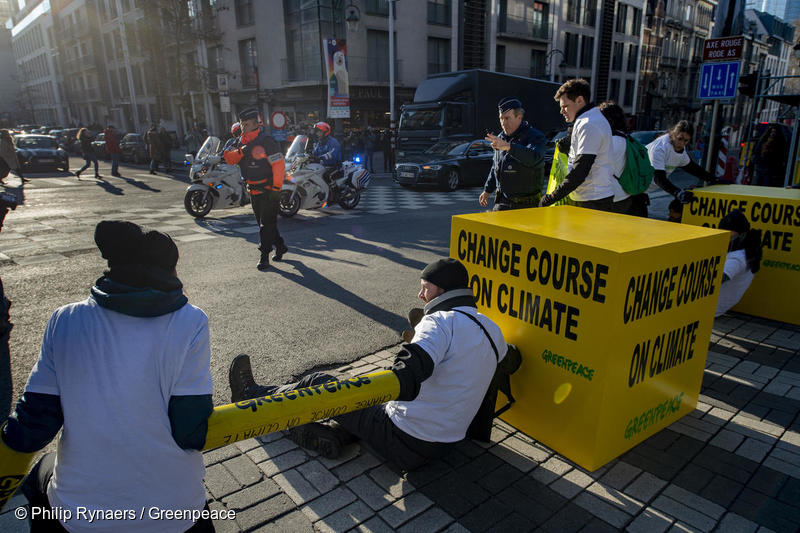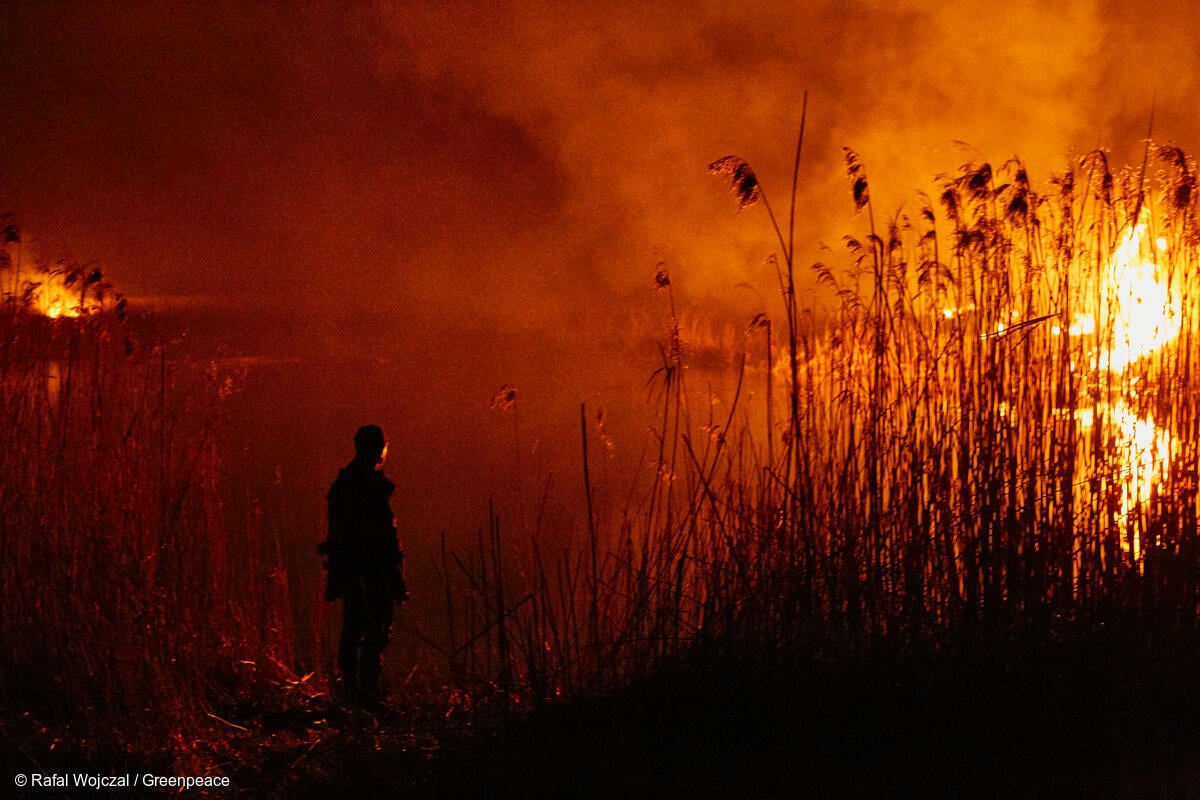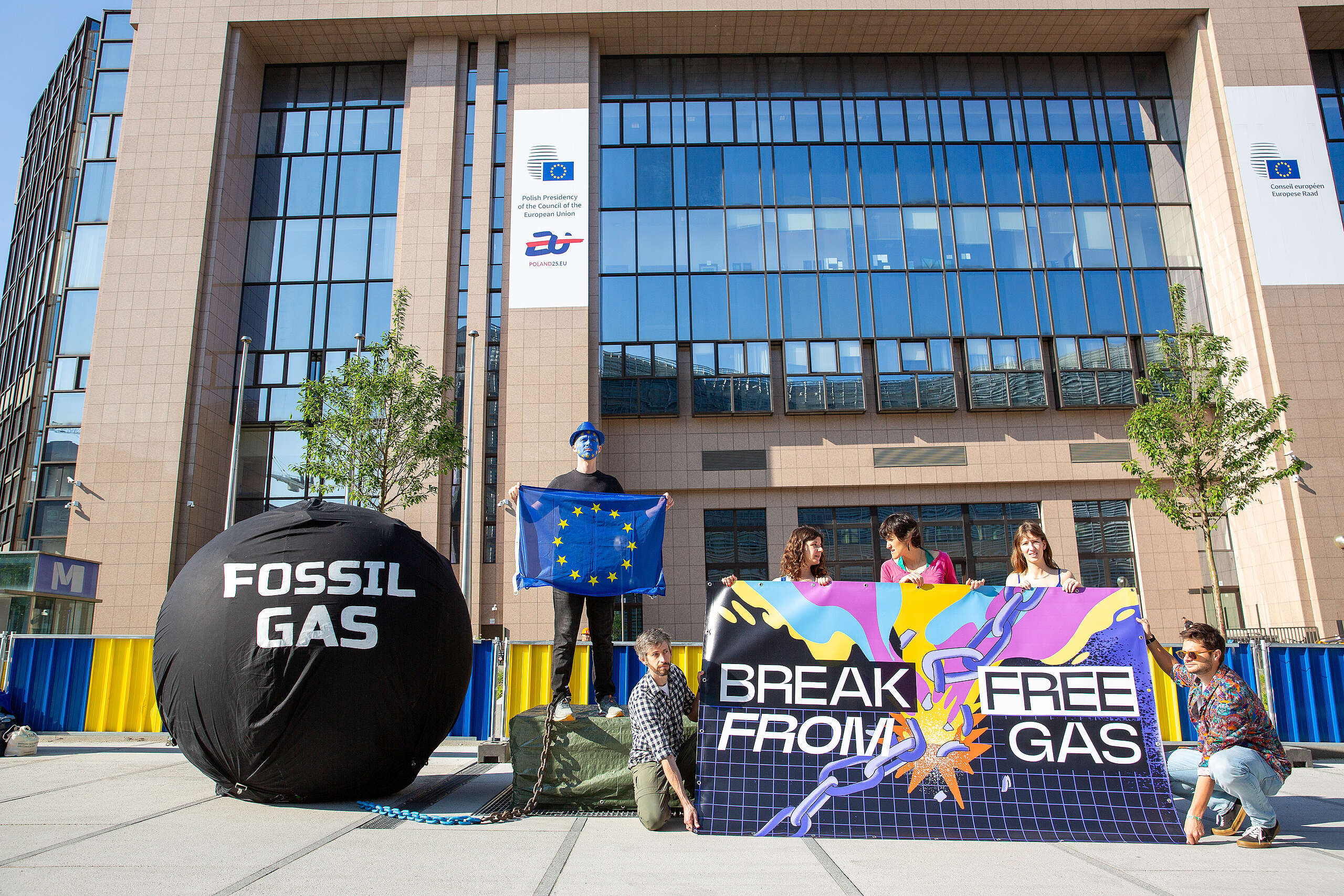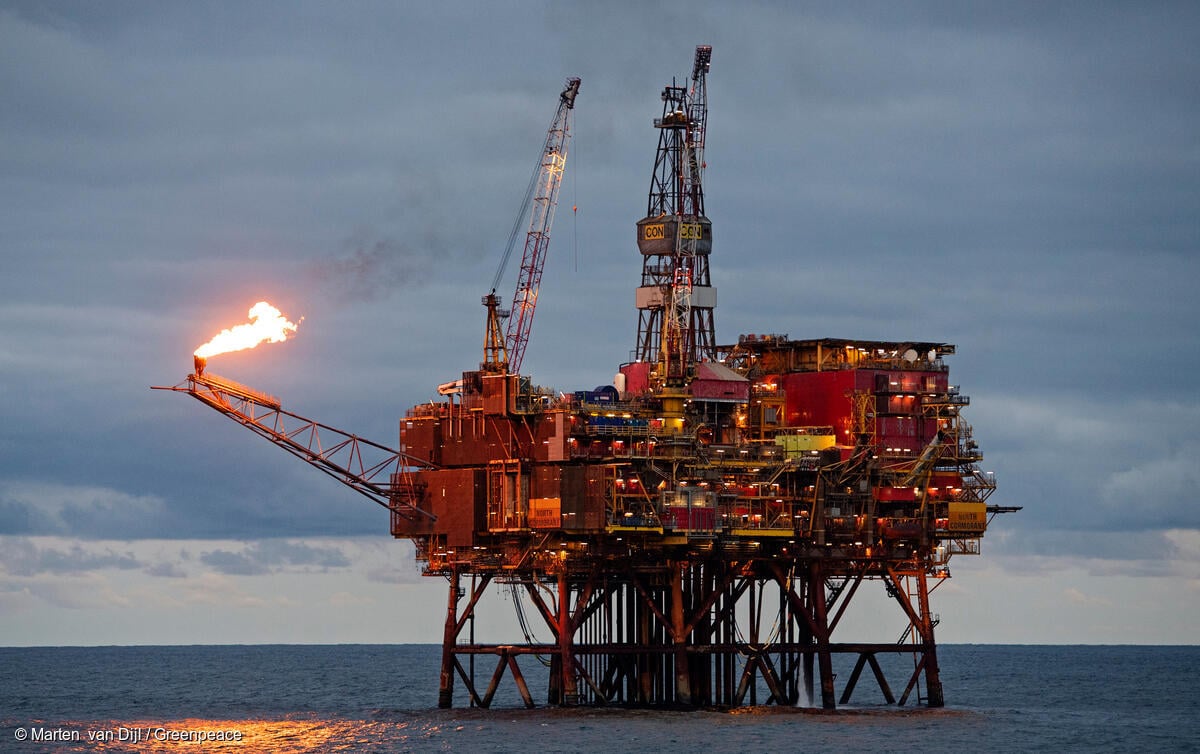It may have been the record-breaking heatwaves and wildfires last summer, or perhaps the dire warning by UN scientists that we only have 12 years left to avoid the worst. Whatever the reason, as COP24 climate talks draw to a close in Poland and as EU leaders meet in Brussels, there is a renewed sense of urgency on climate change. Time is running out for governments to prove that they can respond appropriately.

Climate activists call on European governments to “change course on climate” as they force the rerouting of official motorcades heading to an EU summit in Brussels the day before the end of COP24 climate talks in Poland.
People want to see change. They are tired of big polluters being let off the hook, while consumers are asked to pay for climate action. They are tired of political tinkering while what is left of our forests is gobbled up by coal mines. They are prepared to go to court and take to the streets to challenge governments.
And on Thursday, activists confronted European heads of government at the start of an EU summit in Brussels, demanding that they change course on climate change.
While people mobilise, to a large extent, governments are acting like a deer caught in the headlights: they see the impending danger of climate change, but are not doing what is necessary to avoid it. They are stuck between upsetting big polluting companies by cutting dependence on fossil fuels, or condemning humanity to climate breakdown.
At the same time, what needs to happen to lessen the impact of climate change has never been clearer. The European Commission said on Wednesday at COP24 that it wants Europe to be ‘climate-neutral’ by the middle of the century. This is a positive signal to the rest of the world, but one that is yet to be signed off by European governments.
The Commission plan shows that dumping fossil fuels, boosting renewable energy, improving transport and restoring ecosystems can make this transformation happen – although it relies too heavily on bioenergy and fails to recommend a move away from carbon-heavy industrial agriculture. It shows that, thanks to benefits like cleaner air, hundreds of thousands of premature deaths and diseases would be avoided, reducing the burden on health services.
This socio-economic shift would also create almost three million jobs and increase prosperity, with an estimated €2 to €3 trillion saved by 2050 by slashing Europe’s imports of fossil fuels like oil and gas.
The cost of failing to act appropriately would be immense. UN climate scientists estimate that weather-related disasters could affect about two-thirds of Europeans by 2100, compared with 5% today. Only last year, extreme weather caused a record €283 billion in global damages, according to the Commission.
Despite these mounting costs, the Commission plan itself relies very little on climate action in the next decade, delaying most efforts until after 2030. And yet, as scientists have warned, the next months and years are where governments must demonstrate that they are prepared to change course for the good of their people and the planet.
To be fair, there are signs that things are slowly beginning to shift. Only hours after the Commission presented its plan at COP24 on Wednesday, 11 European governments joined a coalition of countries declaring that they were prepared to increase their 2030 climate targets. But does this commitment mean countries like Germany will also act to phase out coal and dump fuel and diesel-powered transport? These very concrete decisions will be the true test of our governments’ resolve on climate change.
Tara Connolly is the climate & energy policy director of the Greenpeace European Unit



